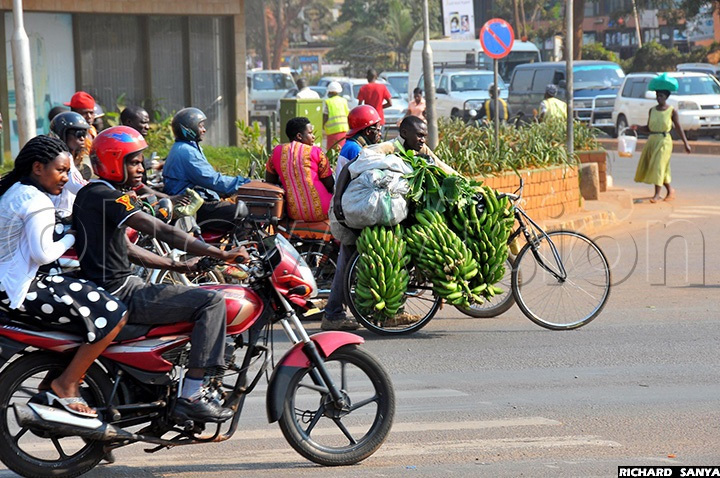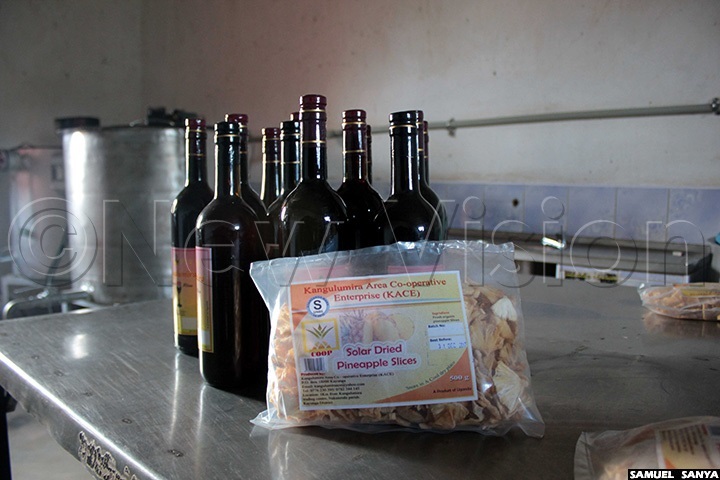URA rolls back taxes to stimulate the economy
John Rujoki Musinguzi, the URA Commissioner General pointed out in a booklet to announce the tax amendments for the 2020/2021 financial year that COVID-19 has affected many businesses with its effects faced by the tax body as well.
TAXES BUSINESS
KAMPALA - The Uganda Revenue Authority (URA) has outlined a raft measures to bolster Uganda's economic recovery from the COVID-19 pandemic. The fiscal measures come in tandem with Bank of Uganda's accommodative monetary policy after growth projections collapsed.
Hitherto, the Central Bank had cut its benchmark Central Bank Rate (CBR) by a further percentage point to 7% for the months of June and July to spur economic growth after economic activity shrunk in April and May.
In a tweet, Barbara Mulwana who chairs the Uganda Manufacturers Association (UMA) said that there is need to increase the level of liquidity in the economy to spark demand and supply.

"Do you know that 7 million informal workers have been out of work and still remain out of work? Close to 1.5 million workers have been laid off due to the pandemic," she said.
Economic growth projections have been cut to within 2.5% to 3.5%, the lowest level in a decade. This is lower than the previous forecast of 3% to 4%. The Previous CBR rate cut has seen the average commercial bank rate for shilling loans drop by 2.2% to 17.7%, making it cheaper for businesses and individuals to borrow.
When people and businesses borrow, they spend more thereby creating jobs which then increase economic activity to catalyze economic activity and growth. It's a circle of joy.
John Rujoki Musinguzi, the URA Commissioner General pointed out in a booklet to announce the tax amendments for the 2020/2021 financial year that COVID-19 has affected many businesses with its effects faced by the tax body as well.

In FY 2019-2020, URA was given a target of sh20.3 trillion but projects a deficit of up to sh3 trillion. Despite that, the Ministry of Finance, Planning and Economic Development has for the FY 2020-2021, given URA a higher target of sh21.81 trillion, comprised of tax revenue amounting to sh20.22 trillion and non-tax revenue of sh1.591 trillion.
"This target which translates into a revenue effort of 14.3% of GDP requires a concerted effort from all of us to attain it. These tax amendments are geared towards industrialization and import
substitution which will in return boost local production and create employment," Musinguzi said.
"Government will ensure that manufacturers acquire raw materials cheaply, which will lower costs of production thereby making domestic products more affordable to Ugandans," he pointed out.
He noted that in addition to several initiatives such as extending filing dates and improving service delivery, "we shall speed up payment of outstanding VAT refunds due to businesses accompanied by measures to limit fraud."
The taxman will starting July 2020 roll out the use of Electronic Fiscal Devices (EFDs) in providing e-receipts and digital tax stamps and expand the range of products covered, to deter under-declaration of production and importation.
In addition, the Uganda government has widened the scope of the income tax withholding agents across all sectors to broaden the tax base and implement the digital collection solution to enhance rental tax collection.
The tax measures also include the reduction of tax rates for small businesses taxpayers and has in the interim deferred until September 2020, payment of Corporate Income Tax and Presumptive tax for Small, Medium Enterprises (SMEs) due, from 1st April to 30th June 2020.

The taxman has also deferred payment of Pay As You Earn (PAYE) taxes until September 2020 from 1st April to 30th June 2020 for tax compliant Ugandan businesses facing hardships. Interest or penalties that will accumulate on the tax amounts during this period have also been waived.
Interest and penalties on tax arrears accumulated before 1st July 2020 has also been waived to lessen the tax liability of businesses who voluntarily comply with their tax obligations and URA has provided for Tax Deductibility of Donations for the Corona Virus Response.
URA has in the same vein extended filing dates, suspended auctioning of goods during this period, reviewed instalment payment and provided several platforms to ease payment of taxes.
"The changes in tax legislation further affirm Government's commitment toward import substitution and strengthening local production," the URA Commissioner General said.
Government has instituted a 10-year income tax exemption for investments, whose capital is USD 150,000 (sh561m) for a citizen investing upcountry and USD 300,000 (sh1.1b) for a citizen investing elsewhere as long as Ugandans make up 70% of the payroll, and at least 50% of raw materials used in production are local.
Those investors will also be exempted from Stamp duty as will instruments related to debentures, equitable Mortgages, and instruments for loans so as to encourage investment.
Ugandans who have small but tax registered businesses will now be judged for presumptive taxes based on the turnover in their books of accounts to encourage bookkeeping. However, taxpayers with no record shall pay a fixed cost.
In a boost to the financial services industry, the Islamic Development Bank has been included on the list of agencies whose income does not pay tax (Listed Institution) to encourage Investment since the IDB is a development bank that extends interest-free credit to business.
The income of the Deposit Protection Fund, which was created to provide insurance for the deposits of customers of regulated financial institutions in the event of collapse, has also been exempted from income tax.
Government has also reduced the tax rate for fruit and vegetable juices from the pulp of fruit and vegetables grown in Uganda from 13% or sh300 per litre, whichever is higher to 12% or sh250 per litre whichever is higher.
Several inputs for the agricultural sector have been exempted from Value Added Taxes (VAT) and the period within which manufacturers can claim input VAT prior to VAT registration has been increased from the current six (6) months to twelve (12) months to encourage investment.

On the other end of the stick, most imports, except those for agriculture and agro-processing will see an uptick in tax rates. Also affected are taxes on fuel for automotive, light, amber high-speed engines from sh880 per litre to sh1030 per litre to generate revenue.
"Note that there is no anticipated price increase on the global market where the price is still low," the URA said in a booklet.
The taxman is also set to introduce a fixed rate of sh10,000 per kilogram of the plastic bags. These include sacks and bags of polymers of ethylene and other plastics except vacuum packaging bags for food, juices, tea and coffee, sacks and bags for direct use in the manufacture of sanitary pads.
Also introduced is stamp duty of sh100,000 on professional licences and certificates; the taxman says this was done to encourage compliance among professionals.
There shall also be charged a levy on unprocessed leaf tobacco at the rate of $0.8 per kilogram of unprocessed leaf tobacco, taken out of Uganda. "The levy shall be paid by the consigner to the Uganda Revenue Authority at the time the unprocessed leaf tobacco is taken out of Uganda," the URA said.